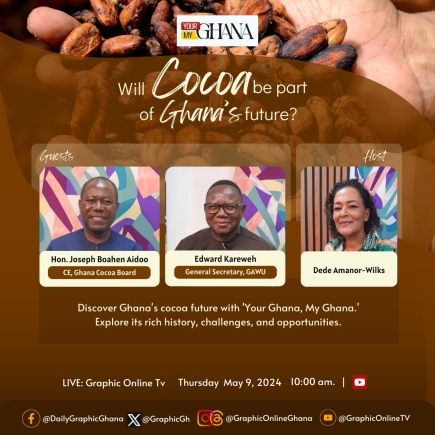Proverbs and national development: A commentary on Prof. Kwame Addo’s Visions of Ghana
In modern times, most of us have forgotten the depth of wisdom in much of our Ghanaian and African traditional proverbs and the way they may have influenced our actions and our relationship with our environment.
Advertisement
Some proverbs, just like profound words in any religious book, comprise some of the several dynamic forces that shape and control human culture and development. As Wole Soyinka, the Nigerian Nobel laureate, would say: “I grew up in an atmosphere where words were an integral part of culture.”
Furthermore, one of our foremost playwrights and cultural activists, Efua Sutherland, had this to say: “Culture is a living thing, it represents the lived experience of people, it is not static.”
By introducing some of our traditional proverbs in his book, “Visions of Ghana –Decoding Development,” Professor Kwame Addo brings to focus the futility and tragic consequences of the disparagement of our traditional human values which have impacted negatively on our national developmental efforts. Professor Addo, a development architect, packages and projects in a visually communicative language, what he observes on the front lines of national comprehensive planning and implementation issues, from infrastructural, socio-economic and socio-cultural standpoints.
Appreciation of aesthetic values
The book catches one's attention for several reasons. Apart from its vivid pictorial imagery, the book also indulges in the use of traditional proverbs as well as quotes from religious books and contemporary sources, which are deftly woven into the fabric of the prose.
This is to make the point that when we put our thoughts and words into action, we shall certainly reap results. For example, a Ghanaian proverb which reads thus:
“If you are on a road to nowhere, find another road.” This adage draws our attention to define a system of re-educating ourselves through our collective creative will.
We cannot pretend to bury the humiliation inflicted upon us since the time of the slave trade and the consequent external systems and influences like colonialism that threw out of gear the collective view of ourselves as creative beings capable of carving out our own destiny and identity. Subsequently, the universal experience in understanding and appreciating the aesthetic value and purpose of life is seemingly lost on our generation.
Our contemporary hazy and haphazard existence has come to confirm the inestimable harm done to the creative memory by the conflict of cultural values.
It is not far fetched to state that the development process is in many ways akin to the creative process. We need to deconstruct in order to reconstruct ourselves.
Essential requirements for meaningful development
The conscientious need to intensify the drive towards rediscovery and development of the lost creative dimension in our young generation especially, in order to sharpen the ability to see, contemplate, reflect, discern, create and to produce for ourselves the basic necessities of life, is paramount.
We are quick to point to the progress made by Malaysia and Singapore since their independence. However, we need to take time to understand the vital creative force behind their success, i.e. conscious development, refinement and usage of the innate power of imagination reposed in every human being.
Creativity, including innovation and perfection, enhanced aesthetic sensibilities, competence and critical thinking skills, as well as discipline and accountability are essential requirements for a meaningful and sustainable development of any society. In their absence, we shall continue on this current path, overwhelming ourselves with all sorts of economic nightmares and tons of imported goods; turning us into what Ayikwei Armah describes as a “Cargo Cult” in his book, “The Beautyful Ones Are Not Yet Born.” To re-orientate ourselves, the reconditioning of our thought processes is an urgent necessity. This is by no means an easy task, for, to revolutionise the entire mental attitude of a generation is to question and also help find answers to their long-standing misconceptions or thought habits.
The book creates the awareness for this nature of exercise, especially in the chapters on Mindset and Debriefing for Development.
Perhaps the success of this book lies in its simplicity. By skilfully moving an important and intricate topic of national physical development planning into a non-conventional artistic territory, Professor Addo has thrown tremendous light on the issues for a better understanding by the widest possible public.
The book draws us together to have a consensus view of ourselves, our resources and the reality of our situation as a nation.
The book focuses all of us on the same page at the same time. Hopefully, some aspects of this book may assist in flushing most of our public institutions out of their collective paralysis in co-ordinating the efficient management of our national affairs.





